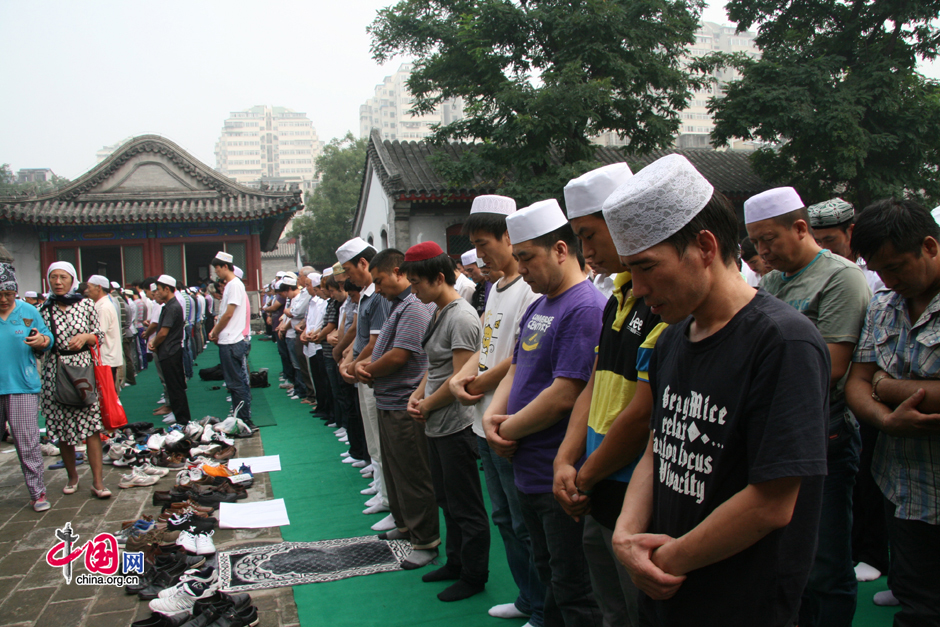| Videos | ? Latest |
|
? Feature | ? Sports | ? Your Videos |
Chinese Muslims celebrate Eid al-Fitr

 0 Comment(s)
0 Comment(s) Print
Print E-mail
China.org.cn, CNTV, September 1, 2011
E-mail
China.org.cn, CNTV, September 1, 2011
At the end of the Muslim fasting month of Ramadan, millions of Chinese Muslims across the country celebrated Eid al-Fitr.
At 9 am on Wednesday, 20-thousand Muslims gathered to pray at the Id Kah mosque in Kashgar, Xinjiang. The mosque is China's biggest and dates back more than 500 years. Worshippers listened to sermons from the Imam and prayed for their families' well-being.
|
Muslim people gather in prayer to celebrate Eid-al-Fitr on August 31 at Niujie Mosque in Xicheng District, Beijing. During Ramadan, the ninth month in the Islamic calendar, Muslims fast during daylight hours. They eat breakfast before sunrise and then take no food or water until sunset. Eid-al-Fitr falls on the first day of the tenth month in the Islamic calendar, and follows a month of fasting. On this day, Muslims take an early-morning bath, and then go to the mosque to pray. Beijing's Niujie Street is a famous Muslim area where most of the residents are Hui people. |
After the ceremony, locals flocked into markets for food shopping. As one of the most important meats for the Eid feast, lamb was at the top of many shoppers' lists. It was in even greater demand due to the government's Eid subsidy.
A shopper in Kashgar said, "The government subsidy has brought down the lamb price from near 50 yuan per kilo to 39 yuan. It's much cheaper now. We're very happy with the price."
Elsewhere in the city of Aksu, Muslims gathered for Eid celebrations. Singing and dancing, they ensured this year's festival would be memorable.
Apart from Xinjiang, Muslims in other regions also celebrated the religious festival. In Qinghai's provincial capital Xining, many families opted for more traditional celebrations at home.
81 year-old, Ma Youcai, had his house cleaned early in the morning before preparing food for the family. All his children have come back for the festival. For the elderly in particular, the festival also serves as an important family reunion.
Eid ends the fast and marks the beginning of a new year in Muslim world. The purpose of the fasting is to teach patience, spirituality and humility to God.
China is home to about 20 million Muslims from more than 10 ethnic minorities. The largest group is the Hui minority, who largely hail from northwest China's Ningxia Hui and Xinjiang Uygur autonomous regions.






